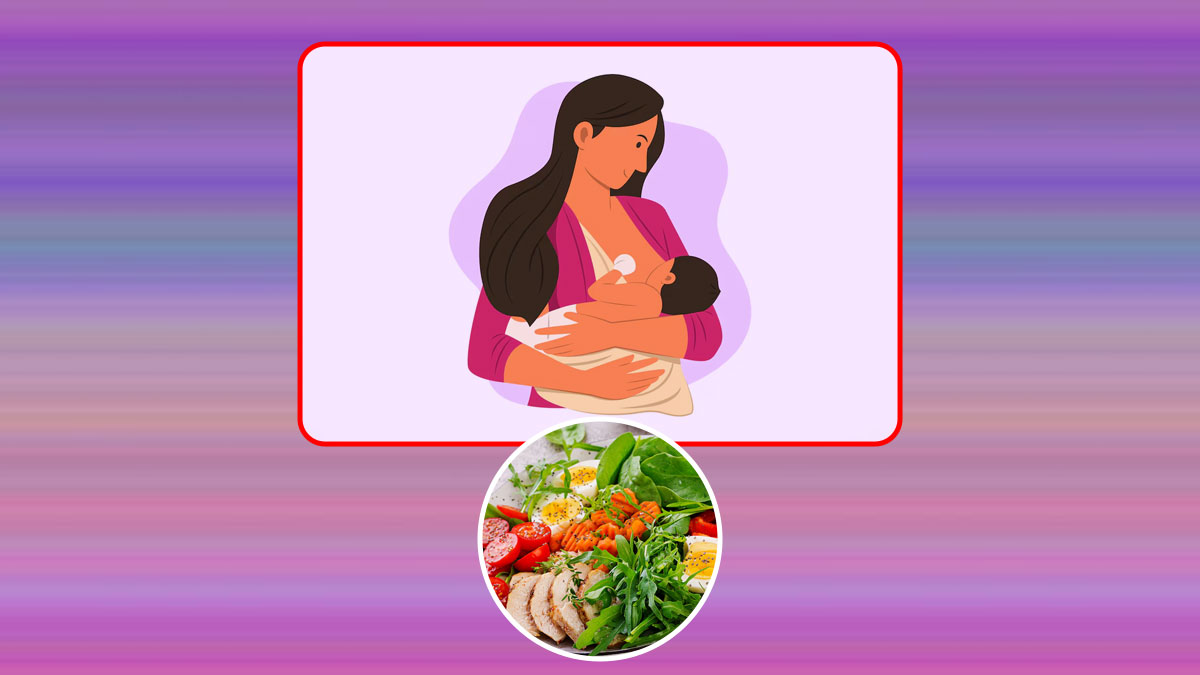
World Breastfeeding Week is observed from August 1 to August 7 every year. This week marks the awareness regarding breastfeeding. With so much information available, it’s easy to feel overwhelmed about what to do, how much to eat, and when to stop. We spoke to Rashi Chahal, Clinical Dietitian, Fortis La Femme, GK2. Scroll down to learn the dietary tips and portion control for new moms.
Rashi Chahal said, “Your diet significantly influences your well-being and your baby’s health. From the first day of breastfeeding, you’ll feed your baby every 2-3 hours. However, in the initial days, you won’t burn many extra calories. This is because, initially, you produce colostrum, and your baby’s stomach is very small with weak facial muscles.”

Here are the foods you should consume during breastfeeding:
Fruits and vegetables are powerhouses of vitamins, minerals, and antioxidants. Aim to include seasonal options like oranges, spinach, and carrots, gourd family in your diet.
Whole grains such as oats, millet, whole wheat bread, and unpolished rice are fantastic sources of energy. They are rich in fibre, which aids digestion and helps prevent constipation, a common issue post-pregnancy.
Proteins are vital for tissue repair and growth. Opt for lean proteins like chicken, fish, eggs, beans, and tofu. Other sources include millets, lentils, and pulses and should be included in the diet. Whole pulses like rajma and chickpeas are very high in fat and might be difficult to digest in the early days due to lack of movement, but once you are up and above do consider including them.
Dairy products like milk, cheese, and yoghurt are loaded with calcium and vitamin D, essential for bone health. If you’re lactose intolerant or vegan, fortified plant-based milk alternatives like almond, soy, or oat milk can be excellent substitutes. Yoghurt can also help in maintaining a healthy gut microbiome, which is beneficial for you.

Don't Miss: World Breastfeeding Week 2024: Dates, History, Significance, And Quotes
Healthy fats are crucial for your overall health and your baby’s brain development. You can consume nuts, seeds, and olive oil in your diet as healthy fat.
Hydration is key during lactation. Drinking plenty of water helps maintain your milk supply and keeps you energised. Herbal teas and milk are also good options.
Here are the foods you should avoid during breastfeeding (yoga poses for breastfeeding):
Certain fish like sharks, swordfish, king mackerel, and tilefish have high mercury levels, which can harm your baby’s developing nervous system. Instead, opt for low-mercury fish like salmon, tilapia, and shrimp, which are safer and also nutritious.
Don't Miss: Bollywood Actresses Who Defied Stereotypes By Embracing Motherhood Through Surrogacy
It's best to avoid it as it can pass through breast milk to your baby.
Limit your caffeine intake to about 1-2 cups of coffee/tea per day. Excessive caffeine can make your baby irritable and disrupt their sleep patterns. Remember, caffeine is not just in coffee but also in tea, soda, bakery foods and chocolate.
Processed foods often contain unhealthy fats, sugars, and salt, which offer little nutritional value and can contribute to unnecessary weight gain.
Follow these tips for a smooth breastfeeding journey.
Herzindagi.com is Jagran New Media's gender and lifestyle vertical, catering to women of all age groups, helping them remain updated, on-trend and aware. To improve our performance and understand our readers' interests better, we have created this poll. This will take 2 minutes of your time, do help us out with this link.
Image Courtsey: Freepik/Unsplash
Also watch this video
Herzindagi video
Our aim is to provide accurate, safe and expert verified information through our articles and social media handles. The remedies, advice and tips mentioned here are for general information only. Please consult your expert before trying any kind of health, beauty, life hacks or astrology related tips. For any feedback or complaint, contact us at [email protected].